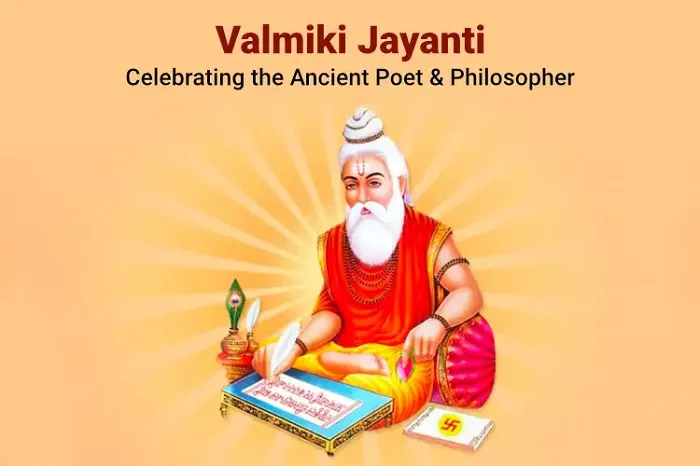Valmiki, often regarded as the first poet of Sanskrit literature, holds a significant place in Indian history and culture. He is best known for composing the Ramayana, one of the great epics of ancient India. The story of Valmiki himself is as fascinating as the epic he wrote, and much curiosity surrounds the details of his life, especially his date of birth and death.
The Life of Valmiki
Valmiki’s life is shrouded in mystery, and much of what we know about him comes from legends and traditional accounts. He is said to have been born as Ratnakara, a bandit who later transformed into a sage through a spiritual awakening. This transformation is attributed to his encounter with the sage Narada, who inspired him to give up his life of crime and turn towards spiritual pursuits.
Valmiki Birth Date
The exact date of Valmiki’s birth is not documented in historical records. Various sources suggest different timelines, often placing his birth several centuries before the Common Era. Some scholars believe he lived around the 5th to 4th century BCE, while others argue for an even earlier period, possibly around the 10th century BCE.
The lack of concrete evidence makes it difficult to pinpoint an exact date. Valmiki’s birth is often celebrated during the festival of Valmiki Jayanti, observed on the full moon day in the Hindu month of Ashwin, which usually falls in October.
Valmiki Death Date
Similarly, the date of Valmiki’s death is not clearly recorded. The absence of detailed historical records leaves much to speculation. Traditional accounts suggest that he continued his spiritual practices and teaching until his death, but the exact timeline remains unknown.
Valmiki’s legacy, however, transcends the limitations of historical accuracy. His work, the Ramayana, has left an indelible mark on Indian culture, religion, and literature. The epic, consisting of 24,000 verses, narrates the life of Lord Rama and teaches lessons on dharma (duty) and righteousness.
Cultural Celebrations
Valmiki Jayanti, which celebrates his birth anniversary, is observed on the full moon day in the Hindu month of Ashwin. This festival varies each year based on the lunar calendar but typically falls in October. It is a day of reverence among Hindus, especially within communities that honor Valmiki as a divine figure.
During Valmiki Jayanti, devotees engage in various activities such as reciting verses from the Ramayana, decorating temples, and offering prayers. The festival serves not only as a celebration of Valmiki’s contributions but also as a reminder of his teachings on morality, truth, and justice.
Legacy
Valmiki’s legacy extends beyond his literary works. The Ramayana, composed in approximately 24,000 verses, explores themes of duty, honor, and righteousness through its characters, particularly Lord Rama. This epic has influenced countless adaptations in literature, theater, and film across cultures.
Conclusion
While the precise dates of Valmiki’s birth and death are lost to history, his influence remains timeless. He is revered not only as a poet and sage but also as a symbol of transformation and redemption. Valmiki’s story and his contributions to literature continue to inspire millions, underscoring the enduring power of his work and the spiritual legacy he left behind.
Interesting Facts About Valmiki
Valmiki, revered as the “Adi Kavi” (the first poet) in Indian literature, is a legendary figure whose contribution to Indian mythology and culture is profound. Here are some fascinating facts about him:
1. The Original Author of the Ramayana
Valmiki is credited as the author of the Ramayana, one of the oldest and most significant epics in the world. Written in Sanskrit, this epic consists of 24,000 verses, spread across seven Kandas (books), and is considered a cornerstone of Hindu literature.
2. From a Bandit to a Sage
Valmiki’s life underwent a dramatic transformation. Originally known as Ratnakara, he was a bandit who robbed travelers in the forest. A divine encounter with the sage Narada led to his spiritual awakening. He gave up his life of crime and dedicated himself to penance and spiritual growth.
3. Creator of the First Shloka
Valmiki is regarded as the inventor of the poetic verse or Shloka. It is said that he composed the first-ever Shloka in Sanskrit when he was moved by the sight of a hunter killing a bird. The verse became the foundation of Sanskrit poetry.
4. His Connection with Lord Rama
Valmiki is believed to have played a significant role in Lord Rama’s life. He provided refuge to Sita, the wife of Rama, during her exile. Sita gave birth to her twin sons, Lava and Kusha, at Valmiki’s ashram. Valmiki also taught the Ramayana to Lava and Kusha, who later sang it in the court of Rama.
5. The Title “Adi Kavi”
Valmiki holds the title of “Adi Kavi” (the first poet) because the Ramayana is considered the first epic poem of Indian literature. His mastery of Sanskrit and poetic expression has inspired countless poets and writers.
6. Valmiki Jayanti
Valmiki Jayanti, celebrated annually, marks the birth anniversary of Valmiki. It is observed on the full moon day (Purnima) in the Hindu month of Ashwin, which usually falls in September or October.
7. Valmiki’s Ashram
The site believed to be Valmiki’s ashram is located near the Ganga River. This area, often associated with peace and spirituality, is considered sacred and attracts devotees and pilgrims.

